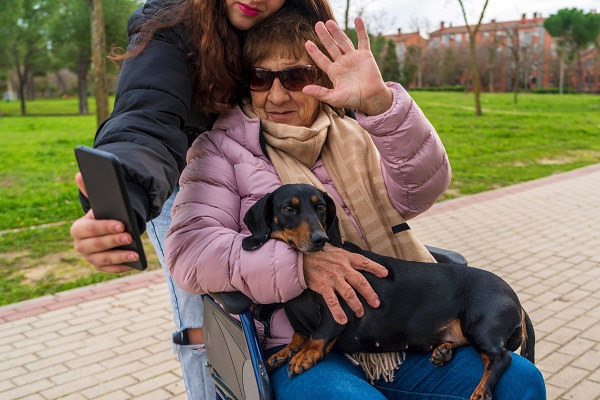Finding empowerment as a caregiver

There are more than 6 million people living in the United States with Alzheimer’s disease, and more than 11 million unpaid caregivers. Those caregivers put in 18 billion hours of caregiving. Data from the Alzheimer’s Association show when averaging the minimum wage across 50 states, that’s worth about $340 billion annually.
On Jan. 8, the Alzheimer’s Association is bringing a class called The Empowered Caregiver to the Salem Health Community Health Education Center.
“We want to educate and empower caregivers on their journey about the responsibilities of caring for someone living with dementia so they can effectively care for them,” said program manager Alise Liepnieks.
Preparing for changes while caregiving
Liepnieks said family caregivers usually look after a loved one for free, and they often receive no formal training.
“There’s no playbook for this,” she said. “No one is born with this knowledge. Dementia is a complex thing, and people learn along the way.”
Part of this class is looking at how family dynamics shift in the wake of caregiving.
“A lot of the time they’ll notice changes in their relationships: intimacy, the equality of the partnership. It becomes more of a caregiver-patient relationship,” Liepnieks said.
However, the program manager said the shared history with a loved one can be used to make care easier. She encourages people to think about what makes the patient feel happy and content.
“What was their occupation? What colors do they like? What music do they like? Do they like the sports page or scripture?” Liepnieks said.
Finding community
Staff with the Alzheimer’s Association want to emphasize with this class that no one can take on the role of caregiving alone.
Liepnieks said if people offer to help, take them up on that. Learn how people can help. Can they mow the lawn? Walk your dog?
“We talk about creating a care team,” she said. “Who can help, and on what level? You start with doctors and then move out to friends and neighbors.”
Liepnieks said she also directs people to resources, like the Alzheimer’s Association.
The program director encourages people to start thinking of these tools early, before they’re at the end of their rope.
“I always say, there’s no perfect caregiver. Don’t beat yourself up. What you’re doing, you’re doing out of love. There are just tools that can make things easier,” she said.
How to sign up
This free class will be held from 1 to 2:30 p.m. on Wednesday, Jan. 8, at the Community Health Education Center, in Salem Hospital Building D, Classroom 1.
Interested in learning more? Register here.